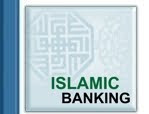
Welcome to the seventh issue of Opalesque Islamic Finance Intelligence (
download the pdf version), once again we bring together a wide array of content that is as diverse as the industry itself. Each of our editions has always delivered a wide range of topics (as this allows us to present relevant material for everyone), but it is increasingly clear that inquisitive research, relevant empirical evidence and timely academic studies are in dire need. This is not only true of their origination but also of their dissemination, thus we gravitate around this particular theme for OIFI VII.
To begin with, our
editorial section delves into the realm of data and information providers and how this space is evolving. In addition, we introduce a new academic-oriented section which we affectionately term the '
Kulliyyah Korner'. Its aims is to provide a glimpse into the latest topics that are being discussed and analyzed across the industry - whether this is within the context of a faculty (or kulliyyah), think tank, etc. Above all, the Korner aims to highlight the rich material available from academic institutions (usually available through industry periodicals and journals) while presenting them to a wider audience.
Hence the first installment of Kulliyyah profiles the research of Anne-Sophie Gintzburger, who has developed an extensive study on the regional variations of Islamic financial instruments as part of her thesis at the Australian National University. We complement this with our
Featured Resource which outlines a variety of past & present case studies at the country-specific level. Furthermore,
Lex Islamicus sees Khalil exploring the Universality and Codification of Islamic Contracts, as it pertains to their enforceability of these in a court of law and the relationship with Lex Mercatoria.
Nikan provides further insights into Shariah compliant principal protected notes as part of the
Featured Structure section. This allows for an interesting contrast to our
Fund Manager Interview which talks to Nick Barisheff, President & CEO of Bullion Management Group (BMG), and their recent entry into the field with their Shariah compliant BMG Bullion Fund. Taking a look forward, our
Opinion Column hears from Professor Mahmood Faruqui, who inquires on where can Islamic Finance contribute as part of repair initiatives in the aftermath of the global financial crisis. Finally, Joy Abdullah makes inquiries in our
Industry Snapshot section regarding the need for consumer data and market statistics - with a particular focus on investor awareness and their perceptions of the Islamic finance industry.
We welcome your comments & suggestions and a reminder that you can check the ever-growing archive of Opalesque Islamic Finance Briefing and Opalesque Islamic Finance Intelligence, all available free (
see reference link).
Download the complete issue of Opalesque Islamic Finance Intelligence
here.
Alternatively you can read each section separately:
Editor's Note: Learning Rushdi-Speak
Featured Resource: Country-Specific Case Studies
Featured Structure: Shariah Compliant Principal Protected Notes
Fund Manager Interview: Nick Barisheff, President & CEO, Bullion Management Group Inc
Lex Islamicus: Universality and Codification of Islamic Contracts
Kulliyyah Korner: Regional Variations on the Permissibility of Islamic Financial Instruments
Opinion Column: Repair Initiatives Post Banking Crises - Can Islamic Finance contribute?
Industry Snapshot: The Islamic Window: Consumer Perception and Market Research in Islamic Finance

Opalesque Islamic Finance Intelligence - Seventh Issue














.jpg)














.jpg)




.jpg)



.jpg)












